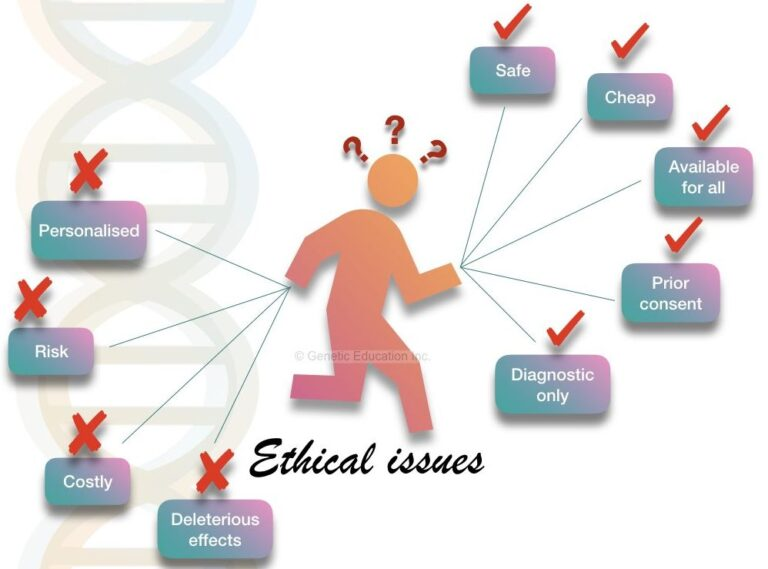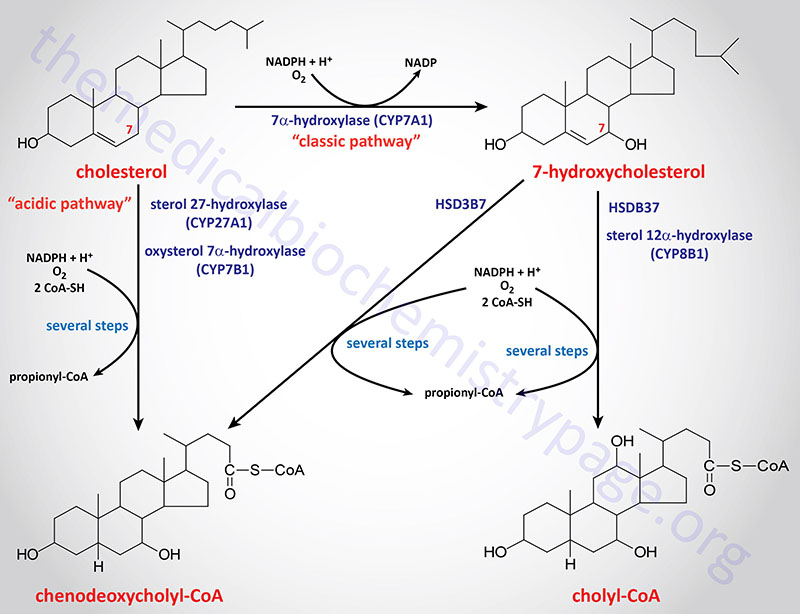The ethical implications of CRISPR technology present a compelling and complex landscape for discussion, as scientists harness the power of gene editing to potentially cure diseases like sickle cell anemia. As innovative applications of genetic modification unfold, our ability to alter human traits raises important ethical questions that must be navigated carefully. The ethics of CRISPR go beyond the medical; they delve into issues of health equity and societal responsibility. How do we determine the appropriate boundaries for gene editing, especially when considering conditions that may not necessarily be life-threatening? Engaging in this dialogue is vital to ensure that advances in gene editing benefit all of humanity while respecting the diverse values of our global community.
Exploring the moral landscape surrounding genomic interventions introduces significant considerations, particularly concerning humanity’s right to modify our genetic makeup. The prevalent discourse on CRISPR options revolves around the innovations enabled by this biotechnological advancement, highlighting both its potential benefits and inherent risks. Delving into gene therapies, especially for hereditary conditions like sickle cell, invites scrutiny regarding the implications of genetic alterations and societal impacts. Furthermore, the conversation navigates the intersection of bioethics, public health, and social justice, emphasizing the need for equitable access to these groundbreaking treatments. As we ponder the future of genetic engineering, it becomes crucial to ask how much we should interfere with the blueprint of life itself.
Understanding CRISPR Technology and Its Applications
CRISPR, an acronym for clustered regularly interspaced short palindromic repeats, has revolutionized the field of gene editing since it was first utilized in the early 2010s. This innovative technology allows scientists to make precise modifications to DNA, acting almost like a pair of molecular scissors. The potential applications of CRISPR are staggering, especially in treating genetic diseases such as sickle cell anemia. By editing somatic cells, doctors are now able to remove the underlying genetic mutations responsible for this painful condition, providing hope for thousands of patients who previously faced limited treatment options.
However, CRISPR’s capability extends to germline editing as well, meaning that alterations can be made not just to a living patient but to the germ cells, which affect future generations. This raises significant ethical implications. Should we venture into altering traits that define what it means to be human, such as skin color or cognitive ability? The discourse around these applications leads us to question the moral boundaries of genetic modification — a conversation that intertwines science with deep philosophical and ethical considerations.
Ethics of CRISPR: Responsibilities and Consequences
The key ethical question surrounding CRISPR technology is not just whether we can edit the genome, but whether we should. As Dr. Neal Baer posits, the ability to cure diseases like sickle cell anemia gives rise to several troubling ethical dilemmas. For instance, is it justifiable to engineer embryos to prevent the disease? On one hand, the prospect of eradicating suffering is compelling, but on the other, such interventions can lead to decisions regarding which traits are considered desirable. This opens a Pandora’s box of societal issues, including the risk of eugenics and discrimination based on genetic characteristics.
Moreover, the financial implications of such gene editing therapies cannot be overlooked. With a staggering cost of $2.2 million for the sickle cell cure, accessibility becomes a pressing concern. Who gets to access these life-saving treatments? The disparity in health outcomes could widen, reinforcing existing divisions in health equity. The conversation around CRISPR technology challenges us to consider not only the hope it brings but also the responsibilities we bear in managing its consequences.
Health Equity and Genetic Modification
Health equity is a critical aspect of the discussions surrounding gene editing technologies such as CRISPR. While breakthroughs in genetic modification have the potential to save lives, they often come with a hefty price tag that may not be accessible to all. As Baer highlights, the burden of cost associated with curing sickle cell anemia raises significant questions about who will benefit from these innovations. This reality underscores the risk of creating a society where health outcomes are tied to socio-economic status, perpetuating a cycle of inequality.
Additionally, access to CRISPR technologies may be uneven, favoring those in affluent populations while leaving marginalized communities behind. This gap can exacerbate existing health disparities, making it clear that innovations in gene editing cannot be viewed in isolation. They must be accompanied by efforts to ensure that all populations can access the benefits, reinforcing the importance of health justice in the context of bioethics and CRISPR.
The Potential of CRISPR in Treating Sickle Cell Disease
Sickle cell disease, a hereditary condition affecting millions worldwide, is one of the primary targets for CRISPR-based therapies. With the ability to directly address the genetic mutations that cause this painful disorder, CRISPR offers a potentially curative approach that goes beyond traditional treatments like pain management and blood transfusions. By using gene editing to correct the underlying defects in hemoglobin, patients could enjoy significantly improved health outcomes and a better quality of life.
However, while the excitement around CRISPR’s potential for treating sickle cell is palpable, it also raises concerns regarding long-term effects and the need for rigorous clinical trials. As scientists strive to ensure the safety and efficacy of these interventions, ethical considerations must remain at the forefront. This balancing act between hope for effective treatments and caution about unforeseen consequences is critical in advancing the conversation about gene editing.
The Role of Oversight in CRISPR Applications
As CRISPR technology evolves, so does the conversation around the need for appropriate oversight and regulation. The moral implications of gene editing necessitate a robust framework to ensure such technologies are used responsibly and ethically. Dr. Baer notes the challenges of governing gene editing, especially in countries with different ethical standards. Without strong regulatory measures, the risk of misuse and unethical experimentation increases significantly.
In particular, the potential for germline editing poses unique challenges, as changes could be passed down through generations. This underscores the urgency for international collaboration to establish ethical standards governing genetic research and applications. By implementing strict oversight, the scientific community can mitigate the risks associated with CRISPR, ensuring it serves to enhance human health rather than create ethical quandaries.
Debating Genetic Modification in Human Variation
The discussions around CRISPR technology also raise a profound question about what it means to be human. The concept of human variation, as expressed by Carol Padden, suggests that not all traits need to be considered as needing modification. The dialogue shifts from simply curing diseases to contemplating whether certain conditions, such as deafness or albinism, should be regarded as variations rather than pathologies. This perspective compels society to reconsider its definitions of normality and the inherent value of diverse human experiences.
While many advocate for the use of CRISPR to address genetic disorders, the premise that we might ‘fix’ human attributes invites complex ethical discussions. It urges society to differentiate between curing diseases and altering characteristics deemed undesirable. Ultimately, it places emphasis on respect for individual identity and acceptance of diversity, challenging the narrative that all human differences require correction.
The Future of Gene Editing: Innovation vs. Ethics
As we advance into an era marked by groundbreaking innovations in gene editing, the tension between technology and ethics becomes increasingly palpable. With CRISPR in the spotlight, its applications promise to reshape medicine significantly; yet each innovation compels reflection on its ethical ramifications. Stakeholders must ask: How do we balance the urge to innovate with our moral responsibilities? As we push the boundaries of what is genetically possible, we must also broaden the discourse surrounding the implications of such advancements.
Moreover, the rapid pace of CRISPR research raises concerns about society’s preparedness for these changes. Stakeholders, including scientists, ethicists, and policymakers, need to engage in ongoing conversations about the potential outcomes and challenges that lie ahead. Continued collaboration among these groups is essential to ensure that innovation aligns with societal values, paving the way for equitable and ethical applications of gene editing technologies.
Public Perception and CRISPR: The Need for Education
The adaptation of CRISPR technology in healthcare is not just a scientific challenge but also a communication one. Public understanding of gene editing is crucial to navigating the ethical concerns it raises. Misconceptions about the technology often lead to public fear and resistance to its adoption. Therefore, education plays a pivotal role in fostering a more informed dialogue about the implications of CRISPR. When people grasp the science behind gene editing, they can engage more effectively in discussions about its ethical use and potential risks.
As outreach efforts expand, it is vital that the messaging around CRISPR emphasizes both the benefits and potential pitfalls of the technology. October 2025 can serve as a pivotal year, shedding light on ongoing clinical trials and their outcomes related to sickle cell disease. By sharing knowledge and empirical results with the public, scientists can build trust and facilitate an open dialogue, ensuring that society is not just passive observers but active participants in shaping the future of genetic modification.
Navigating International Regulations for CRISPR
The global implications of CRISPR technology highlight the necessity for international collaboration on ethical guidelines and regulations. Different countries hold various standards regarding gene editing, which can lead to discrepancies in how the technology is applied around the world. The challenge lies in establishing a cohesive framework that respects cultural differences while promoting safety and accountability in gene editing practices. Such efforts require engagement from multiple stakeholders, including governments, scientific communities, and ethicists.
The growing interdependence between nations in the field of biotechnology accentuates the need for an expansive dialogue on the ethical considerations of gene editing. Instances of unregulated gene editing in countries lacking stringent oversight exemplify the potential risks that technologies like CRISPR can pose. Therefore, a unified international approach could contribute to safeguarding ethical standards and ensuring that advancements in genetic modification reflect the values and needs of the global community.
Frequently Asked Questions
What are the ethical implications of CRISPR technology in gene editing?
CRISPR technology raises significant ethical implications regarding gene editing, particularly in how it allows us to manipulate the human genome. The core concern is balancing the potential benefits of curing diseases, like sickle cell anemia, against the moral responsibilities of altering human traits. Key issues include the cost of treatment, health equity, and the risks of unintended consequences from genetic modifications.
How does CRISPR impact health equity in gene editing treatments?
The use of CRISPR for gene editing has profound implications for health equity, especially given the high costs associated with treatments, such as those for sickle cell disease. Access to these innovative technologies could be limited to wealthy populations, exacerbating existing health disparities. Important discussions around who can afford these treatments need to be addressed to ensure fair access to gene editing advancements.
What are the potential risks associated with CRISPR gene editing?
CRISPR gene editing poses several risks, including unintended genetic alterations and long-term consequences on health, as genes are interconnected and influence various biological processes. There are also concerns about the ethical use of CRISPR for non-therapeutic enhancements, raising questions about the moral authority we hold in altering human genetics.
Should CRISPR be used for conditions that are compatible with life, such as Down syndrome?
The ethics of using CRISPR for conditions like Down syndrome are highly controversial and debated among bioethicists. Questions arise about parental rights in deciding the attributes of their children and whether society should intervene in such natural variations. This discussion also touches on the concept of disability and the value of human diversity.
What role does legislation play in the ethical implications of CRISPR and gene editing?
Legislation is essential in guiding the ethical implications of CRISPR and gene editing. While certain actions, like cloning and germline editing, are restricted in many countries, enforcement and oversight remain inconsistent globally. The potential for unethical practices in countries with lax regulations highlights the need for strong international guidelines to ensure responsible use of gene editing technologies.
How might CRISPR technology affect our understanding of human variation and disabilities?
CRISPR technology challenges our understanding of human variation and disabilities by introducing the possibility of ‘curing’ traits some see as natural variations rather than pathologies. Debates arise regarding whether altering these traits is ethically justified and how such decisions reflect societal values about normalcy and diversity.
Will gene editing lead to a new era of ‘designer babies’ and what are the ethical concerns?
The prospect of gene editing leading to ‘designer babies’ raises complex ethical concerns regarding parental choice, societal norms, and the potential for class-based genetic enhancement. This taps into fears of exacerbating inequalities and altering our perception of genetic diversity, and pushes for a conversation about the moral implications of choosing specific traits in children.
What is the significance of oversight in the use of CRISPR technology?
Oversight in the use of CRISPR technology is critical to ensure ethical practices in gene editing. With advancements in genetic modification, there is an urgent need for comprehensive regulatory frameworks to prevent misuse and to monitor potential outcomes of gene editing, particularly in countries where laws may be less stringent.
| Key Issue | Description |
|---|---|
| Ethical Dilemmas | The right and responsibility to change human differences is a central question in gene editing. |
| Costs of Treatment | The average cost of CRISPR treatments, like the sickle cell cure at approximately $2.2 million, raises affordability and equity issues. |
| Parental Decisions | Parents making choices about genetic modifications for their children, such as altering traits or conditions, presents ethical concerns. |
| Oversight and Regulation | Questions arise regarding who regulates gene editing practices, especially in countries with less stringent laws. |
| Unintended Consequences | Gene editing can lead to unforeseen effects, as genes interact in complex ways beyond just the intended modification. |
Summary
The ethical implications of CRISPR are profound and complex. With the potential to change the very fabric of human genetics, CRISPR technology invites us to consider not just the possibilities for cures but also the moral responsibilities that come with such power. Decisions regarding genetic modifications raise challenging questions about what it means to be human, the fairness of access to such treatments, and the long-term consequences of intervening in natural evolution. These ethical implications highlight the necessity for careful consideration and oversight as we navigate the future of gene editing.



